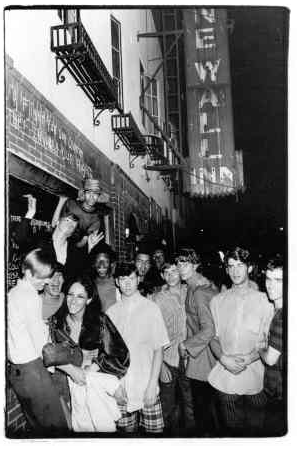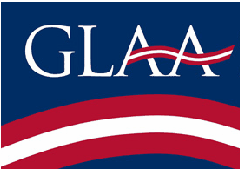 Jesse’s Journal by Jesse Monteagudo
Jesse’s Journal by Jesse Monteagudo
GLBT Groups:
From Volunteers to Professionals
Recently the executive directors from various gay, lesbian, bisexual and transgender groups in South Florida met, in the words of a reporter, "to discuss what was happening in the community, and how all of them could work toward the same vision." What I found most fascinating about this long-overdue meeting is not that it happened but how it reflected the development of our GLBT groups. Today, it is taken for granted that a community organization would have a paid, experienced, professional executive director that would run that group’s day-to-day business. This was not always so.
Before and after Stonewall (1969), and well into the 1980’s, most GLBT groups were led and administered by volunteers. There were several reasons for this. First, of course, was the high cost of hiring a paid professional. Second, was the fact that at that time most experienced professionals wouldn’t be caught dead working for a "gay" organization. Finally, we believed in those innocent times that our groups belonged to "the people" and that we should keep the management of such groups as close to "the people" as possible.
Since I came out in 1973, I have been involved in my fair share of political, religious, educational and social GLBT organizations. And in most cases, I was not qualified to run any of those groups when I started. Like most volunteer leaders, I learned as I went along and, for the most part, I believe that I did a good job. It was on-the-job training, and it was long, hard, and sometimes frustrating work. But there was a satisfaction in building an organization with our own hands, sometimes literally. When Congregation Etz Chaim (South Florida’s synagogue for "Jews of the Rainbow") expanded its storefront in Aventura (1988), we actually painted the walls, laid the tile floors and installed the electrical outlet. This is something that would be unheard of today, and when Cong. Etz Chaim moved to its present location in Wilton Manors earlier this year, it hired professional contractors to do the job. Though I wouldn’t get on my hands and knees to put up drywall anymore, I felt at the time that, by doing the hard work, I had a personal stake in "my" Synagogue.
A paid professional gives an organization the talent and experience that a volunteer amateur cannot give, no matter how well-meaning s/he is. And hiring professional staff is a natural part of the development of an organization, GLBT or otherwise. A good example is Fort Lauderdale’s Stonewall Library and Archives (SLA), the largest gay collection in the South. When Mark Silber and Joel Starkey founded the Stonewall Library and the Southern Gay Archives, respectively, in the early 1970’s, both groups were literally one-man operations, housed in their founders’ respective homes. When a Committee was created to run Stonewall in 1984, it moved to the second floor of Fort Lauderdale’s Sunshine Cathedral Metropolitan Community Church. But though the Library – and the Archives, after it merged with the Library – acquired bigger (and more accessible) quarters, it was still run by amateurs.
I was president of SLA at the time, and though my love of books was great – as anyone who read my book reviews know – I did not have the knowledge or experience that a professional librarian would have. That did not stop me from compiling a library classification system, one that’s since been replaced by a more professional system. Today the Stonewall Library and Archives enjoys a paid Executive Director, Jack Rutland, and a budget that we in the eighties couldn’t even dream of. Even the volunteers are largely retired librarians who bring lifetimes of expertise into their work. All this is indicative of SLA’s growth, and I am proud to have had a small role in its history. In today’s commercial, competitive, highly compartmentalized climate, groups have to adapt in order to survive.
Still, there is a place in every group for volunteers. SLA knows this, which is why volunteers are still welcome and appreciated by that organization. The SLA Board of Directors – all volunteers – does not limit its contributions to monthly meetings and an occasional check. Rather, Stonewall’s 2004 Board – like its predecessor – is a hard-working group of men and women who devote much of their time and effort on SLA’s welfare. There is a big difference between a donation and a total commitment, and we who are involved in groups of our choice know this. So get involved in your local GLBT organization, as much as you can and in as many ways as you can, for your own good and that of your community.
Speaking of GLBT groups: Here is a trivia question: What is "the nation’s oldest continuously active gay and lesbian civil rights organization?" The answer is the Gay and Lesbian Activists Alliance of Washington, D.C., which has been "fighting  for equal rights since 1971." 36 years is over a century in queer years, and almost unique for any GLBT group. (Though the Los Angeles Metropolitan Community Church has functioned since 1968.) Originally the Gay Activist Alliance, the GLAA was inspired by the greatest of all post-Stonewall organizations, the Gay Activists Alliance of New York City. Though GAA-NY is sadly gone, the D.C. "chapter" still dedicates "itself to securing the ‘full rights and privileges’ of citizenship for the gay community through ‘peaceful participation in the political process.’"
for equal rights since 1971." 36 years is over a century in queer years, and almost unique for any GLBT group. (Though the Los Angeles Metropolitan Community Church has functioned since 1968.) Originally the Gay Activist Alliance, the GLAA was inspired by the greatest of all post-Stonewall organizations, the Gay Activists Alliance of New York City. Though GAA-NY is sadly gone, the D.C. "chapter" still dedicates "itself to securing the ‘full rights and privileges’ of citizenship for the gay community through ‘peaceful participation in the political process.’"